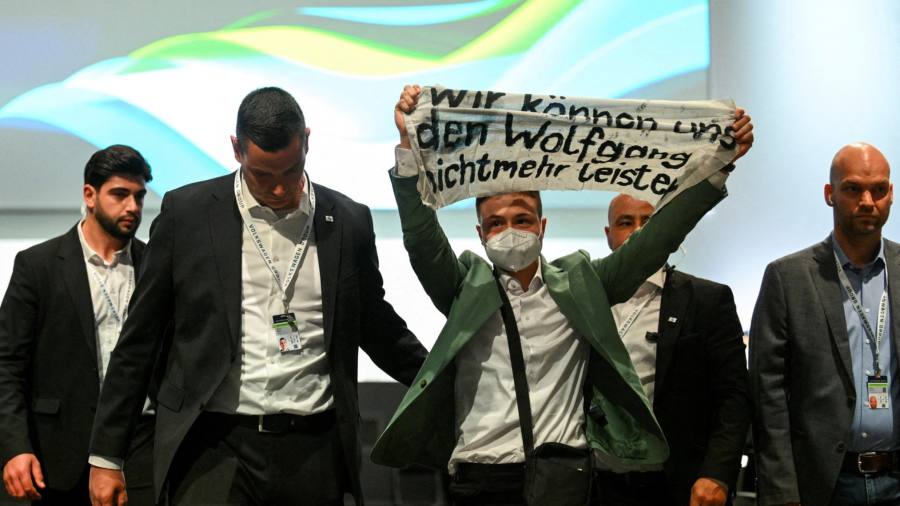Volkswagen investors are demanding an independent audit of the German automaker’s factories in China’s Xinjiang region as executives confront human rights and climate protesters at a tumultuous annual meeting.
Security agents escorted activists holding signs, including those calling for an end to alleged forced labor on Uighurs. A protester threw a cake at Wolfgang Porsche, narrowly missing the patriarch of the two families that control Volkswagen.
Investors at the meeting raised concerns about factories in Volkswagen’s region, where China has been accused of human rights abuses, including alleged mass burials and forced labor in internment camps.
The plant has been downsized in recent years and its future has become a sensitive issue for VW’s new chief executive, Oliver Blume, who is also facing criticism over the automaker’s poor sales of electric vehicles in China.
Top 20 shareholders Deka Investment and Union Investment have called for an independent audit of the plant. Ingo Speich, head of corporate governance at Deka, said VW needed to prove it had nothing to hide, thinking that would also help its share price.
“As long as the full evidence is not presented, the reputational and litigation risks exist,” he warned.
Uyghur activist and German president of the World Uyghur Congress Haiyuer Kurban has called on the public not to profit from Beijing’s encroaching control over ethnic minorities in Xinjiang.
“There are more than 20 detention camps near (Volkswagen’s Xinjiang) factory,” he claimed, adding that Volkswagen is the only remaining carmaker in the region.
VW says it is committed to respect for human rights and good working conditions. The company, which jointly operates the Xinjiang plant with its Chinese joint venture partner SAIC, cannot make decisions affecting it alone.
Ralf Brandstätter, VW’s board member in charge of China, said the company “has not seen any evidence of human rights abuses at factories”.
In February, Brandstätter visited the company’s factory in Xinjiang for the first time, expressing “deep concern” at reports of human rights abuses. In an internal memo, he had said the factory was “generally of a high standard”, describing a stand-alone canteen specializing in halal dishes and a “learning island” where workers could learn Uighur.
Volkswagen is facing demands from investors to resolve a controversy surrounding its factory in Xinjiang, as they push the company to increase sales in the country where it is accused of abusing its power.
Janne Werning, head of ESG at Union Investment, said asset managers had not received any “satisfactory answers” to repeated questions about “potential human rights abuses”.
In the same speech, he expressed concern about VW’s performance in China, noting that Chinese brands such as BYD will soon challenge VW not only in Asian countries but also in Europe.
“The question now for VW is to remain relevant in the world’s largest car market – or to be content with being a niche supplier,” he said.


